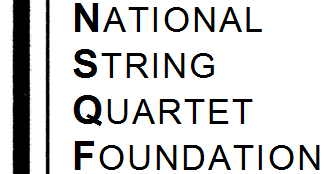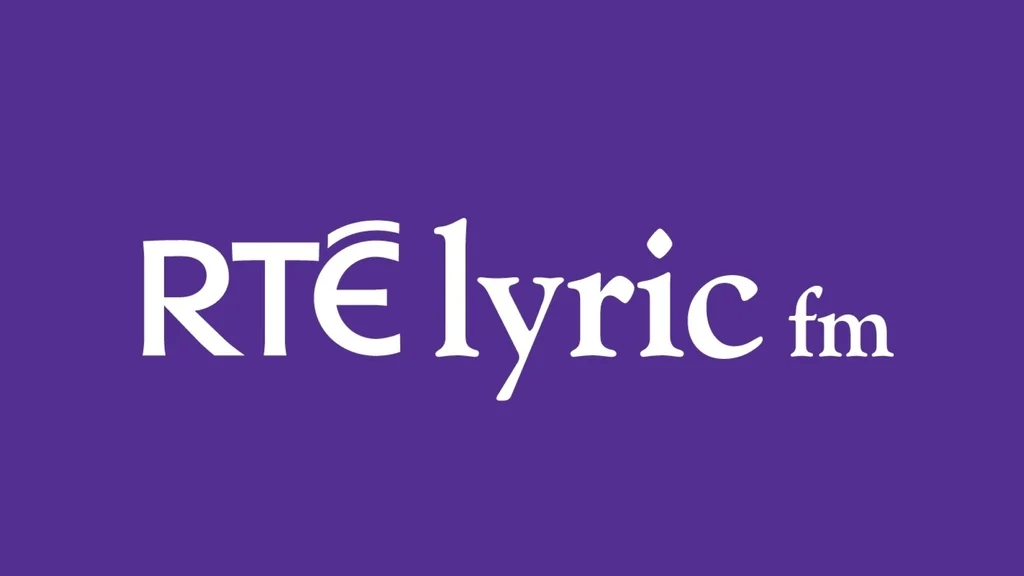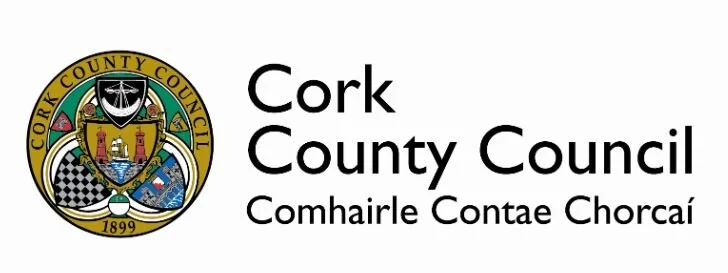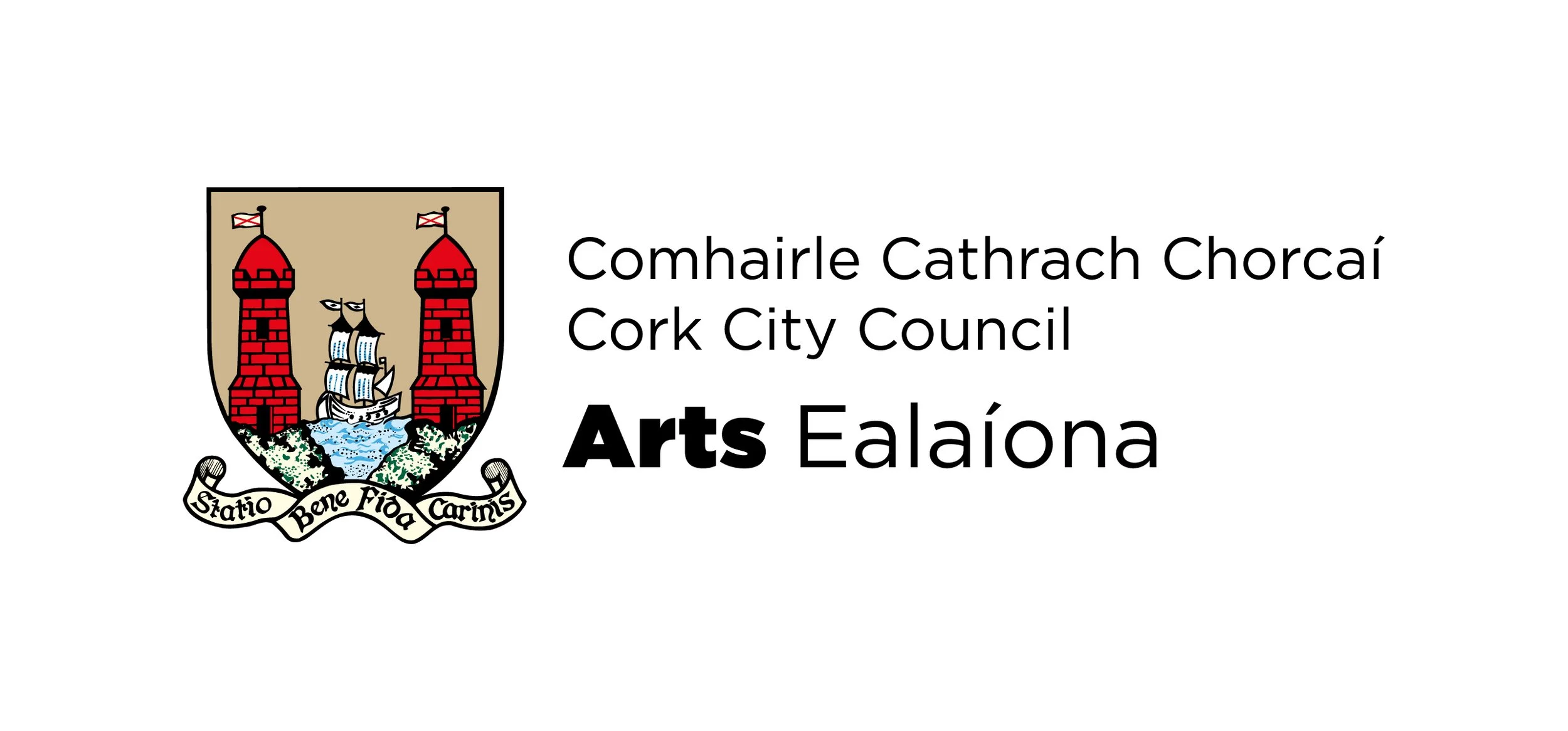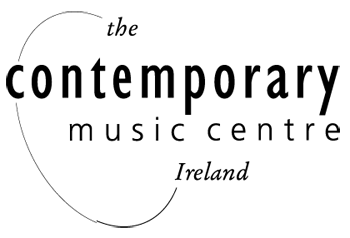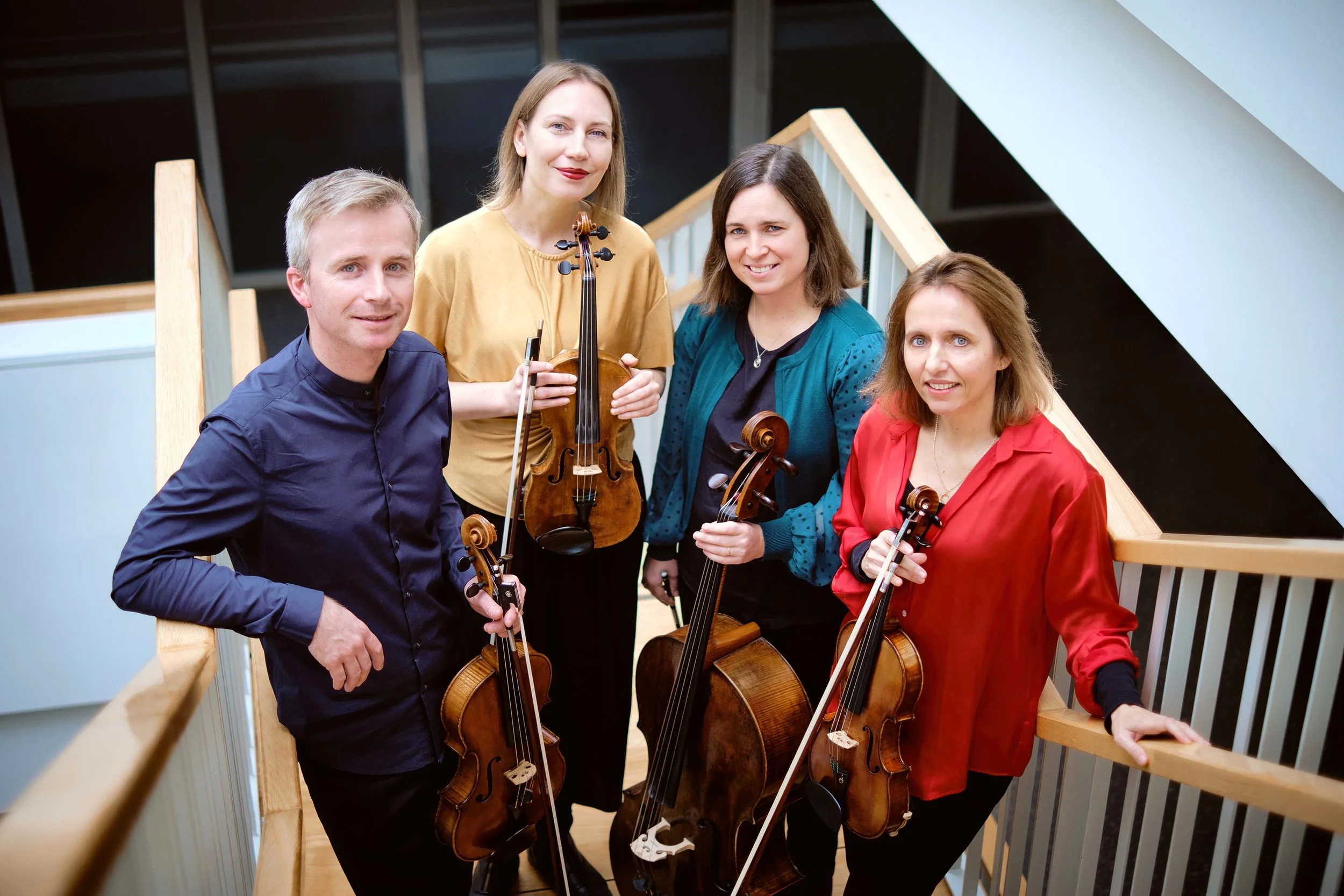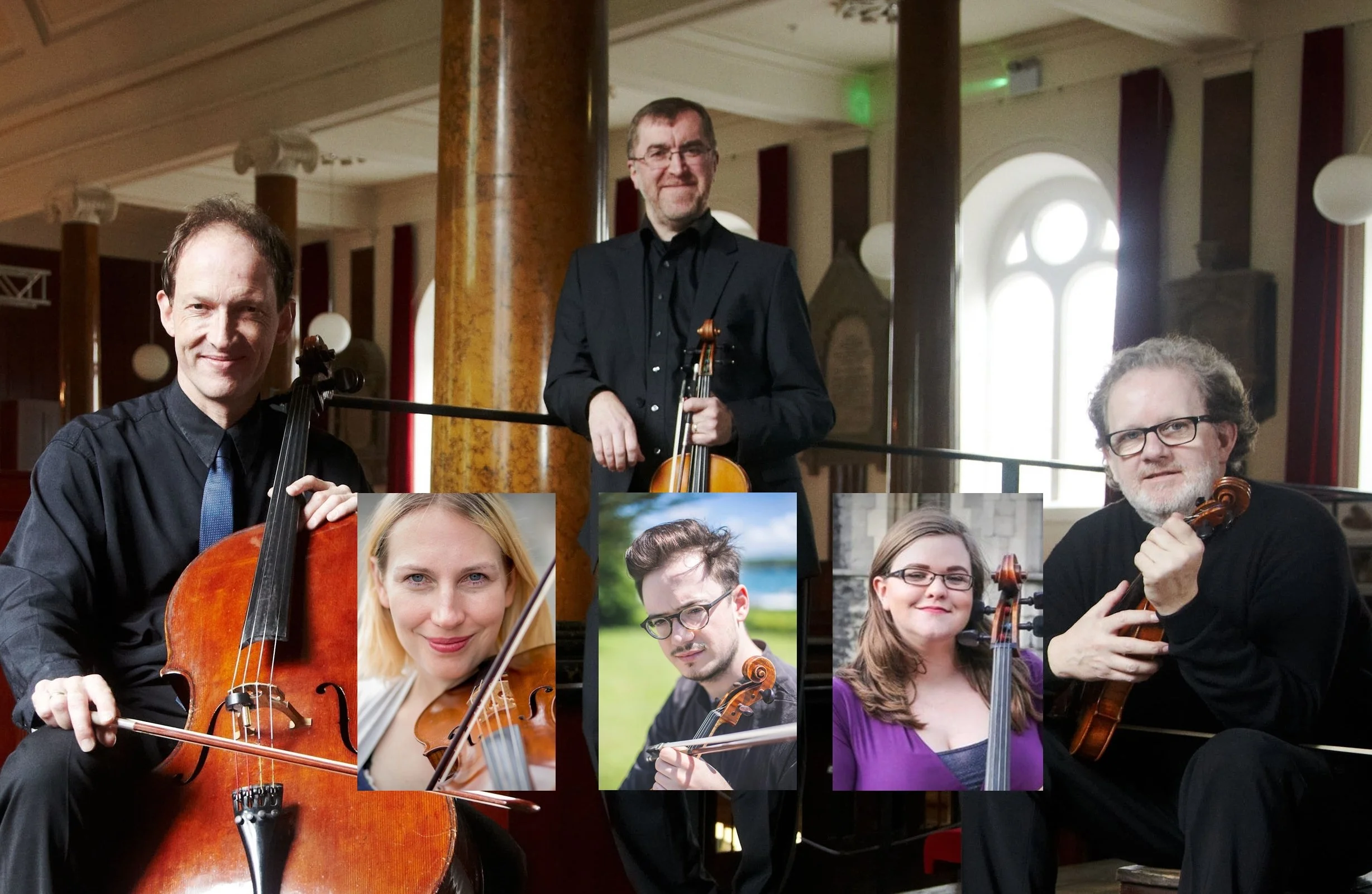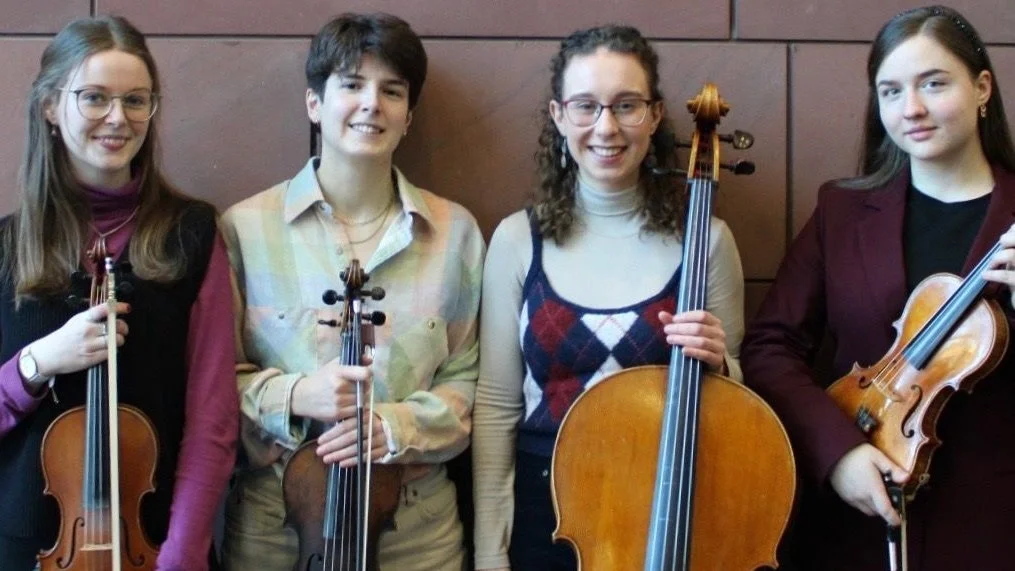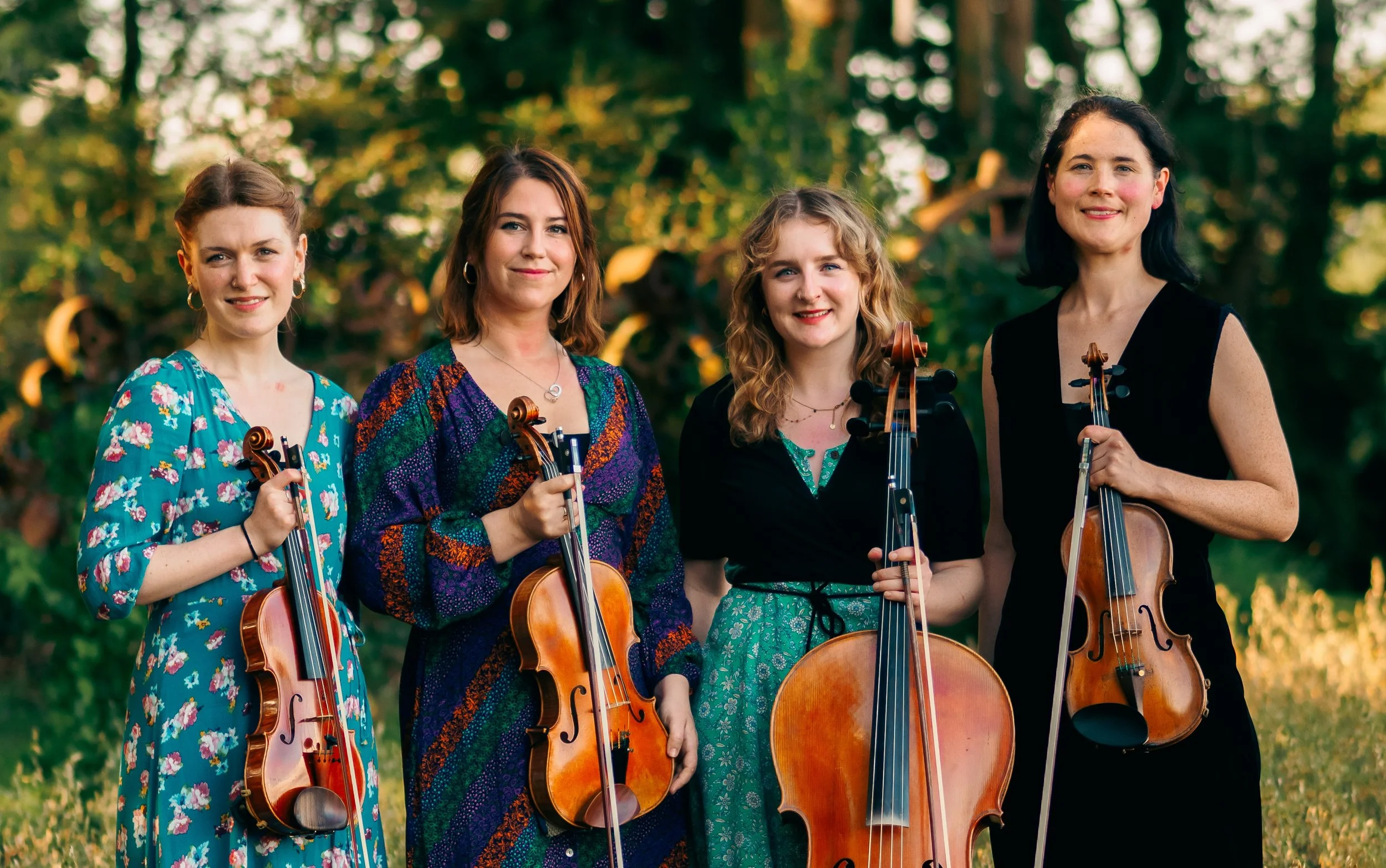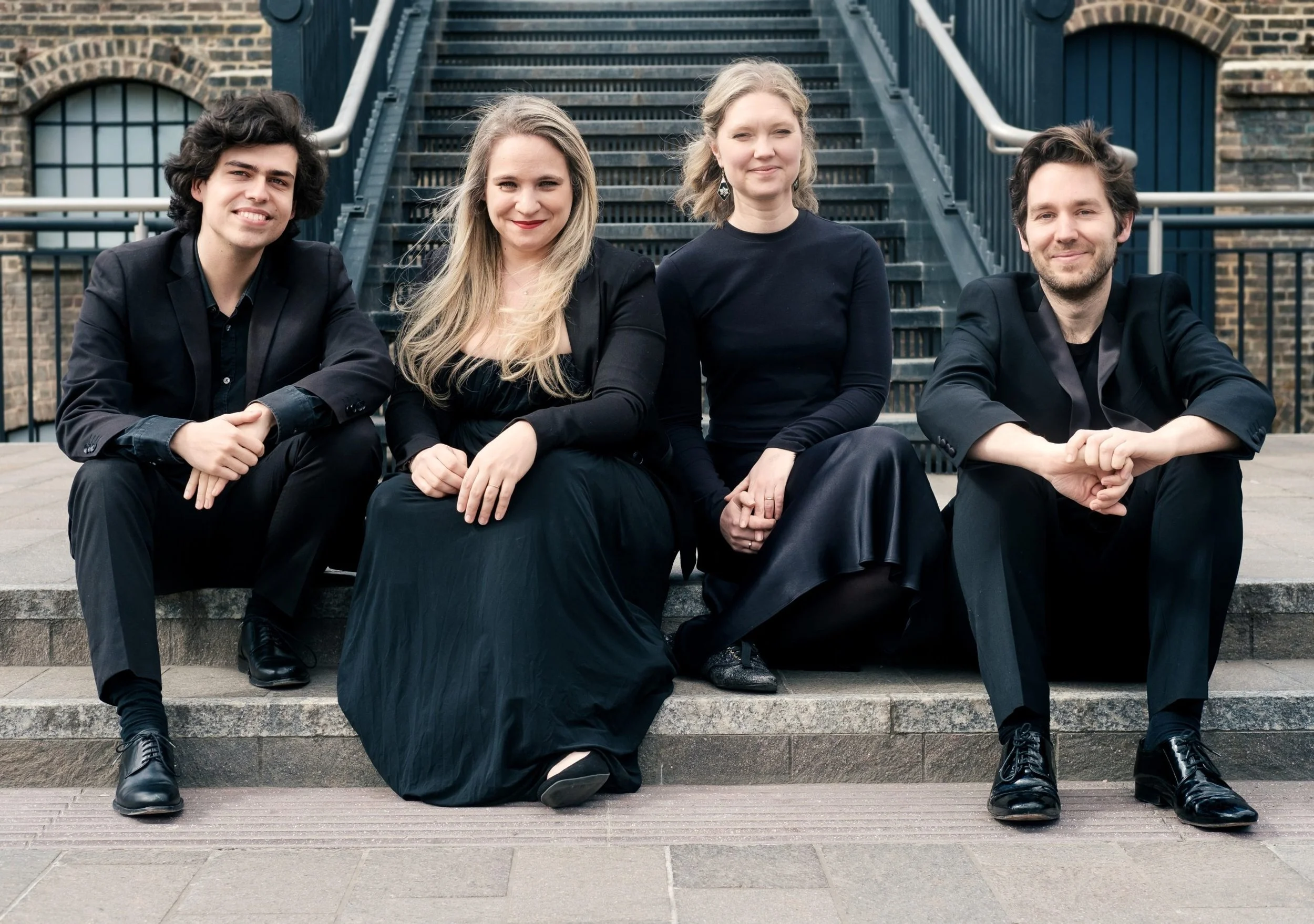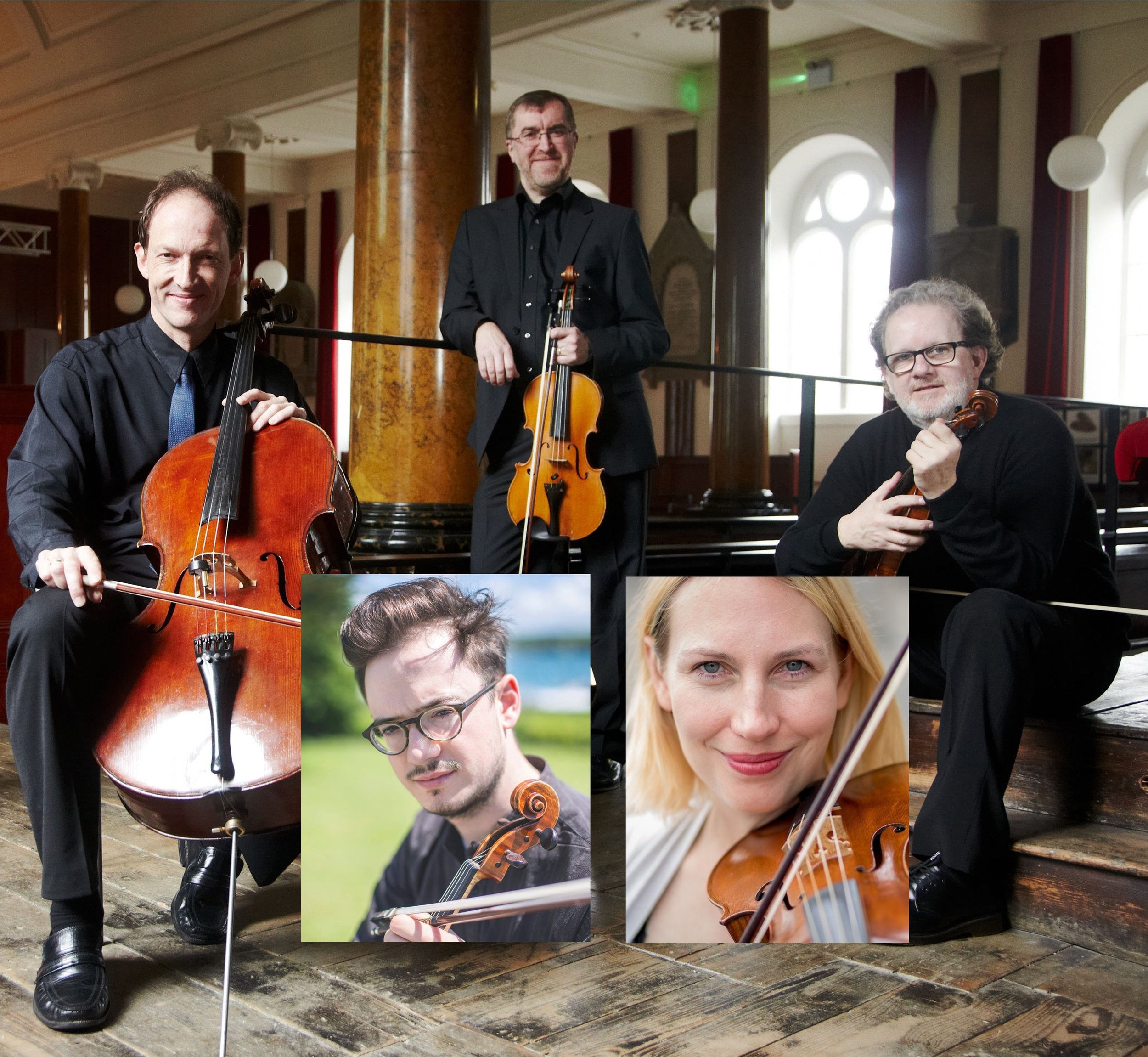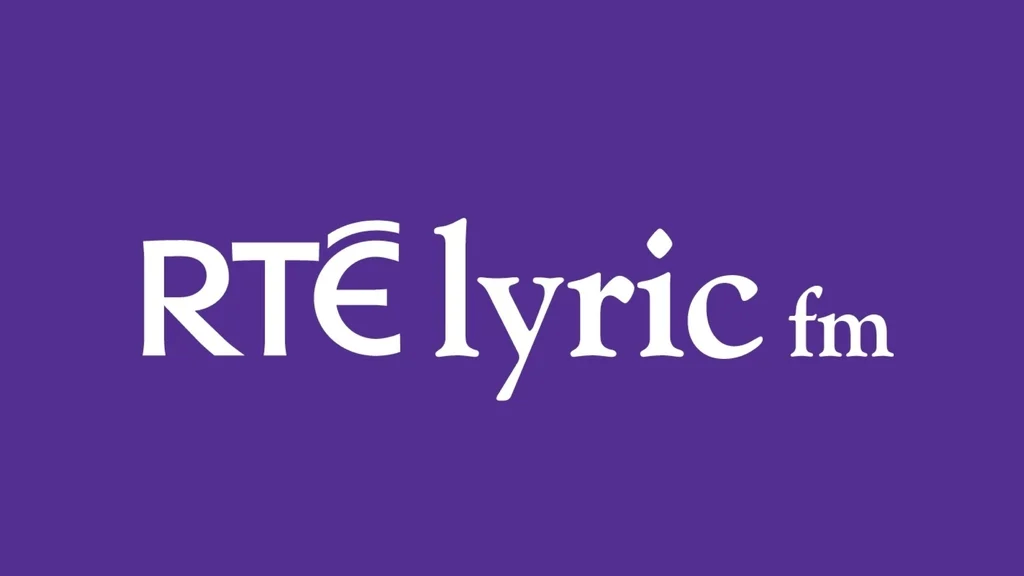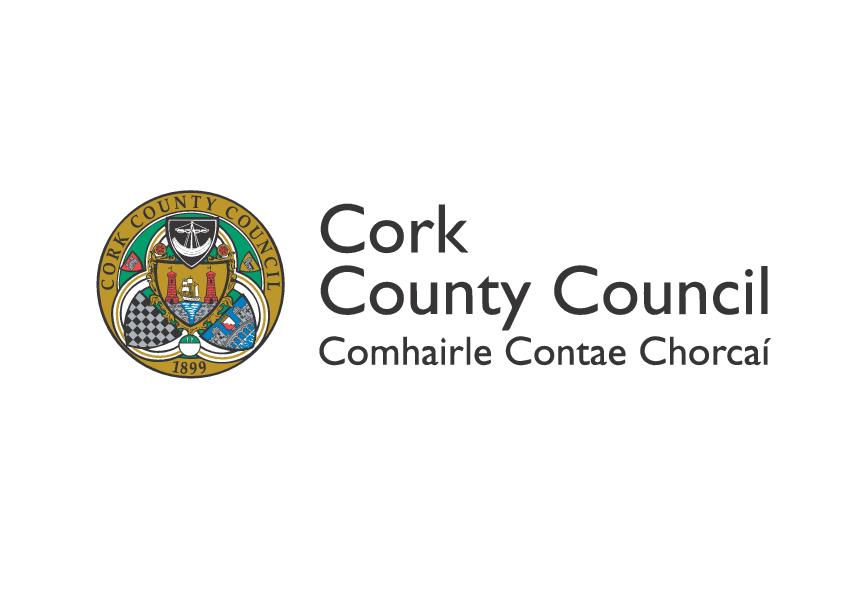SPRING SEASON 2024
Add your email address here if you would like to subscribe to our mailing list. We send out booking links and notifications ahead of each tour.
SEASON OVERVIEW
Click on a tour to jump to that section of this page
Tour 1 - Solas Quartet (January 17-21)
Tour 2 - Vanbrugh & Friends (February 9-11)
Tour 3 - Ora Quartet (February 14-18)
Tour 4 - Piatti Quartet (March 6-10)
Tour 5 - Vanbrugh & Friends (March 22-24)
Tour 6 - Vanbrugh & Friends (April 18-21)
NSQF spring season in 30 seconds…
TOUR 1 - SOLAS QUARTET - January 17-21
Katherine Hunka introduces Pass the Hat
Solas Quartet
Katherine Hunka, violin
Marja Gaynor, violin
Cian Ó Dúill, viola
Aoife Nic Athlaoich, cello
Matthew Locke – Curtain Tune from The Tempest [1674]
Fanny Mendelssohn – String Quartet in E flat major [1834] **except in Cork/Dublin**
Katherine Hunka – Pass the Hat [2023]
arr. Marja Gaynor – Old Wedding March / Lord Mayo (trad)
Alexander Borodin – String Quartet No.2 in D major [1881]
For their third NSQF tour the Solas Quartet presents two Romantic masterpieces, Fanny Mendelssohn’s elegantly lyrical quartet from 1834, and Borodin’s D major quartet, famous for its Nocturne featured in the 1953 musical Kismet. Their programme opens with Matthew Locke’s curtain raiser to a 1674 London production of The Tempest and features the first performances of a new quartet by Katherine Hunka, a theatrical look at power dynamics within a group. New arrangements by Marja Gaynor of two trad tunes complete a lovely programme.
Please note, the Fanny Mendelssohn Quartet will not be played in the lunchtime concerts in Cork and Dublin
Concert programme for Cork / Dublin available for download here
Concert programme for other venues available for download here
CASTLEBAR – Wednesday 17th January at 8pm – Linenhall Arts Centre
TULLAMORE – Thursday January 18th at 8pm – Esker Arts Centre
ROSSCARBERY – Friday 19th January at 8pm – St. Fachtna’s Cathedral - presented by Barrahane Music
CORK - Saturday 20th January at 1pm -Triskel Christchurch
DUBLIN – Sunday 21st January at 12pm – Hugh Lane Gallery
TOUR 2 - THE VANBRUGH - February 9-11
Vanbrugh & Friends
Keith Pascoe, violin
Marja Gaynor, violin
Simon Aspell, viola
Ed Creedon, viola
Christopher Marwood, cello
Maria O'Connor, cello
Beethoven - String Quintet in E flat major Op.4 [1795]
Brahms - String sextet in G major Op.36 [1865]
The Vanbrugh and their guests present two fine and highly contrasted works from the extended chamber music repertoire. Beethoven’s early string quintet Op.4 is his own re-working of his wind octet written in Vienna in 1793 where there was great demand for light-hearted wind band music. The arrangement for strings offers an attractive and elegant lightness of touch. In contrast, Brahms’ extraordinary G major sextet is the work of a composer at the peak of his powers, its mood ranging from the restrained beauty of the opening bars to the boisterous party music in the scherzo and the relaxed playfulness of the finale. The 32-year-old composer wrote it in idyllic surroundings near Baden-Baden, Germany and it was premiered in Boston, Massachusetts in 1866.
MTU CSM’s Gealach Quartet, Kseniia Yershova, Ellen O’Connell, Ilona Adams and Alina Obreja, opens the UCC concert with movements from Haydn’s Quartet Op.76/5
The Gealach Quartet joins the Vanbrugh at UCC
CORK UCC – Friday 9th February at 1.10pm – Aula Maxima, UCC - Beethoven Op.4, plus the GEALACH QUARTET playing Haydn
CLIFDEN – Saturday 10th February at 8pm – Station House Hotel - presented by Clifden Arts Society - tickets at the door
SLIGO – Sunday 11th February at 3pm – The Model - presented by Con Brio
TOUR 3 - ORA QUARTET - February 14-18
Ora Quartet
Siún Milne, violin
Molly O’Shea, violin
Ali Comerford, viola
Yseult Cooper-Stockdale, cello
Joseph Haydn - Quartet in A major Op.20 No.6 [1772]
Emma O’Halloran - Dying is a wild night [2019]
Benjamin Britten - Quartet No.2 Op.36 [1945]
We are delighted to welcome the recently formed Ora quartet to the Foundation’s touring programme. After several years enjoying playing together in various chamber music formations, these four outstanding musicians decided in 2023 to join as a string quartet and made their debut at Fuddlefest in August of that year. Projects in 2024 include a series of collaborative concerts in the Everyman, Cork, as well as this tour
Haydn’s ground-breaking 1772 set of string quartets was written while the 40 year old composer was Kapellmeister at the Eszterháza palace near Vienna. This is the last in the set and it is noticeably bright and optimistic in character, perhaps an antidote to the uncomfortably damp and marshy living conditions at the palace. Emma O’Halloran’s Dying is a wild night is a reflection on mortality inspired by events in the composer’s family. It began to take shape in 2017 as part of the West Cork Chamber Music Festival’s Composition Competition and underwent substantial revision before being premiered in its final form at the 2019 Festival. Written as a tribute to Purcell and premiered on the 250th anniversary of his death, celebrated English composer Benjamin Britten’s second quartet is a work of startling originality, surely one of the most important string quartets of the 20th century (Kai Christiansen, earsense.org)
LISTOWEL - Wednesday 14th February at 8pm - St John’s Theatre and Arts Centre
SKIBBEREEN - Thursday 15th February at 8pm - Abbeystrewry Church - presented by Barrahane Music
KENMARE - Friday 16th February at 6pm - Buttermarket
CORK - Saturday 17th February at 1pm - Triskel Christchurch
DUBLIN - Sunday 18th February at 12pm - Hugh Lane Gallery
TOUR 4 - PIATTI QUARTET - March 6-10
Piatti Quartet
Michael Trainor, violin
Emily Holland, violin
Miguel Sobrinho, viola
Jessie Ann Richardson, cello
WATERFORD/WEXFORD/SLIGO
Mendelssohn - Quartet in E flat major Op.12 [1829]
Moeran - Quartet in E flat [1923]
Charlotte Harding - Iorsa [2022]
Dvořák - Quartet in F major Op.96 ‘American’ [1893]
The Piatti Quartet return for their latest tour for the National String Quartet Foundation with a wide-ranging and entertaining programme. Mendelssohn’s beautiful E flat quartet was his first published quartet and from the first bars draws the listener into a world of dramatic story-telling. Moeran’s second quartet shares the same key but in contrast offers a beguiling world of English and Irish folk song and dance, mixed perhaps with the influence of Debussy. Charlotte Harding’s ‘Iorsa’ evokes the scenic glen on the Isle of Arran, while Dvořák’s famed ‘American’ Quartet draws on both native American and Slavonic folk music, as well as, in its strong rhythmic vitality, on the composer’s fascination with railways.
CORK/DUBLIN
Purcell - Chacony (arr. Britten) [1680/1963]
Mendelssohn - Quartet in E flat major Op.12 [1829]
Charlotte Harding - Iorsa [2022]
Moeran - Quartet in E flat [1923]
For the shorter programmes in Cork and Dublin, the Dvořák is replaced by Benjamin Britten’s arrangement for string quartet of Purcell’s memorable and atmospheric Chacony.
CONCERT PROGRAMME AVAILABLE FOR DOWNLOAD:
Waterford / Sligo / Wexford
Cork / Dublin
READ MORE ABOUT CHARLOTTE HARDING:
WATERFORD - Wednesday 6th March at 7.30pm - Large Room, Waterford City Hall - presented by Waterford Music
SLIGO- Thursday 7th March at 7.30pm - Methodist Church, Wine St. - presented by Con Brio
WEXFORD - Friday 8th March at 8pm - Grantstown Priory, Wellingtonbridge, Co. Wexford.Y35 D4C4 - presented by Music for Wexford
CORK - Saturday 9th March at 1pm - Triskel Christchurch
DUBLIN - Sunday 10th March at 12pm - Hugh Lane Gallery
TOUR 5 - VANBRUGH & FRIENDS - March 22-24
Vanbrugh & Friends
Keith Pascoe, violin
Marja Gaynor, violin
Simon Aspell, viola
Ed Creedon, viola
Christopher Marwood, cello
Maria O'Connor, cello
Beethoven - String Quintet in E flat major Op.4 [1795]
Brahms - String sextet in G major Op.36 [1865]
The Vanbrugh and their guests present two fine and highly contrasted works from the extended chamber music repertoire. Beethoven’s early string quintet Op.4 is his own re-working of his wind octet written in Vienna in 1793 where there was great demand for light-hearted wind band music. The arrangement for strings offers an attractive and elegant lightness of touch. In contrast, Brahms’ extraordinary G major sextet is the work of a composer at the peak of his powers, its mood ranging from the restrained beauty of the opening bars to the boisterous party music in the scherzo and the relaxed playfulness of the finale. The 32-year-old composer wrote it in idyllic surroundings near Baden-Baden, Germany and it was premiered in Boston, Massachusetts in 1866.
UCC concert programme available for download here
Youghal and Baltimore programmes available here
TOUR 6 - THE VANBRUGH - April 18-21
Vanbrugh & Friends
Keith Pascoe, violin
Marja Gaynor, violin
Simon Aspell, viola
Ed Creedon, viola
Christopher Marwood, cello
Boccherini - String Quintet in E major G.402 [1802]
Beethoven - String Quintet in C minor Op.104 [1795/1817]
Dvořák - String Quintet in E flat major Op.97 ‘American’ [1893]
Cellist-composer Luigi Boccherini was the quintessential composer of quintets, whose lovingly crafted works reside in a secluded, shadowed space enjoyed by lovers of melancholy. The twelve quintets for two violins, two violas and cello have yet to reach the full light of day, despite their innovative harmonies and surprising turns of events. This is the very last of his well over one hundred quintets for various combinations. Beethoven wrote his darkly beautiful C minor piano trio Op.1 No.3 in 1795 and it became one of his most popular chamber works. He published this string quintet arrangement in 1819. West Cork Music’s Francis Humphrys writes eloquently of Dvořák’s viola quintet: ‘Its unquestioning overflowing of delicious tunes marks it as belonging to an age of innocence, unlike the intellectual questing of most contemporary music, which is entirely alien to Dvořák’s world. Instead we have an irresistibly infectious joy in music-making’
